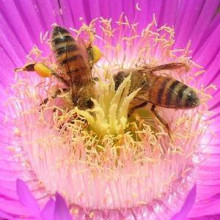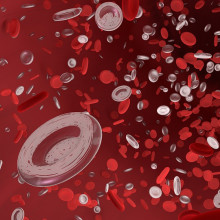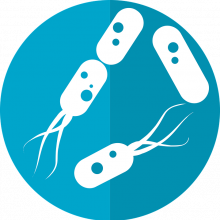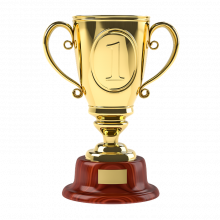Science Pub Quiz!
This week, pull up a chair, a drink, and get your pens and paper ready, because it's time for The Naked Scientists science pub quiz! Playing along are climate scientist Ella Gilbert from the British Antarctic Survey, animal behaviour scientist Eleanor Drinkwater, plants and pollinators researcher Hamish Symington and physiologist Sam Virtue...
In this episode

01:12 - Let's meet the quizzers
Let's meet the quizzers
Sam Virtue, Ella Gilbert, Eleanor Drinkwater, Hamish Symington
Katie Haylor and Phil Sansom meet the scientists playing the Naked Scientists pub quiz...
Katie - Playing alongside you down the line are: animal behaviour scientist Eleanor Drinkwater, hello! Eleanor, can you hear us?
Eleanor - Yes, yes I can.
Phil - Then we've got physiologist Sam Virtue! Hello Sam!
Sam - Hi Phil.
Katie - Also on the line is climate scientist Ella Gilbert...
Ella - Hello!
Phil - And plant and pollinator researcher Hamish Symington. Hi Hamish!
Hamish - Hi there, how are you doing.
Katie - Now Eleanor, you've been on the show a fair few times before, but are you a regular pub quizzer?
Eleanor - I am enthusiastic but terrible, I'm afraid! Mostly enthusiastic.
Katie - What can you bring to the table though? What's your expertise? Tell us about what you're interested in.
Eleanor - I must admit that I'm a bit of a bug nerd. So if you have any questions about invertebrates, or insects, or preferably insect personality, then I'm really your go-to.
Phil - Eleanor does that come up much in pub quizzes?
Eleanor - Unfortunately not, I'm still waiting for my moment. But not yet.
Katie - What's your particular area of interest when it comes to bugs?
Eleanor - I study woodlice in particular. I'm interested in how different woodlice have different personalities, and that affects how they interact and how the different groups of woodlice interact.
Katie - What kind of personalities do woodlice have?
Eleanor - Oh my goodness, so many types of personalities. They have fabulous personalities. You get some which are shy, and some which are bold and explorative; some of which kind of like company, others of which don't like company; so next time you see a woodlouse, I hope that everybody has a greater appreciation for their brilliant personalities.
Phil - Let's move over to Sam. How do you tend to do when it comes to a pub quiz?
Sam - Well I haven't actually had a chance to do them for a long time as I've moved out to the countryside, but I used to do alright at a pub quiz. Fortunately my specialist round was usually the sport, which I'm not sure how much of that's going to be on today's show.
Phil - You'll find this as the rare pub quiz that doesn't have any sporting questions. Do you not have a village local that does a quiz?
Sam - It's a nice idea, but sadly I also have two small children, so finding time to disappear off for several hours of an evening is rather gone now.
Phil - Tell me, what area of science have you got up your sleeve today?
Sam - So I'm an animal physiologist, so if you have any questions about why mice get fat I might be quite good at those. But otherwise my more general area is on diabetes and obesity.
Phil - Funnily enough, we do have two whole rounds of questions on how mice fat, would you believe it?
Katie - You should be so lucky...
Sam - It's going to be really embarrassing when I get everything wrong.
Phil - Let's move over to Ella. Ella, welcome to the program. What's your science area?
Ella - I'm a climate scientist, but I also work at the British Antarctic Survey, so I'm interested in anything polar. So think cold thoughts.
Ella - Are we talking polar wildlife, polar atmosphere? What's your area?
Ella - I've got my head in the clouds mostly. So I'm an atmospheric physicist, I do things like climate modeling. So I'm interested in wind, weather, clouds... a lot of clouds, I'm going to be honest. And anything kind of climate related.
Katie - Do you have a favourite pub quiz team name? Bearing in mind we are pre-watershed...
Phil - Because some of those team names are a bit... you know...
Katie - Some of them are a bit cheeky. Do you have a favorite sciencey one?
Ella - Generally I just go for the ruder the better, which I feel like may not be that appropriate...
Katie - No...
Ella - ...and always have to have a terrible pun: Cirrusly Bro.
Phil - 'Cirrus-ly'?
Katie - Ah, that's really good. We are such a fan of a pun here on the Naked Scientists.
Phil - That's a real groaner.
Ella - Well I can always provide banter, puns, and terrible dad jokes. You can count on me.
Katie - Tell us a bit more about what you're researching at the moment.
Ella - I'm looking at an ice shelf called Larsen Sea. It's on the Antarctic Peninsula, and it's the little bit that sticks out. And I'm interested in what's making it melt.
Katie - Do we know?
Ella - Ah, that would be a spoiler. You have to read my research to find that out.
Katie - Ah, okay. Any snippets you can give us?
Phil - Can I put in a guess? Is global warming helping?
Ella - Nail on the head!
Phil - I'm good at pub quizzes.
Katie - Phil you're not allowed to win the quiz. That was cheating. Let's move on, shall we? Hamish, where are you?
Hamish - Hello!
Katie - Hello. What's your particular research bag?
Hamish - So I am looking at what it is that bees like about flowers to try to make flowers better at being pollinated, under the umbrella of crop security.
Katie - Oh, I see. So foodstuffs, right?
Hamish - Foodstuff, exactly, yeah. In particular I'm looking at strawberries. Or at least I was before lockdown; students aren't allowed back at the university at the moment. So all of my plants went in the bin.
Katie - Oh no, that's such a shame! Because it's kind of getting to strawberry season... is it? May, June?
Hamish - Yeah. Ideally now at this time I would have a polytunnel in the Botanic garden with several hundred strawberry plants in it, which I could measure the hell out all. But sadly I'm not allowed that, so I can't be doing my research. So when I get back I'll be able to do some more stuff to do with bees and pollination in the lab.
Phil - Hamish, is this figuring out: what is it that bees like the most when it comes to something like pollinating strawberries?
Hamish - Yeah, that's the idea. We're going to have several billion more people in the world over the next few decades, and there is a general decline in insects around the world. We rely on pollination for about 75% of the crops that we grow. So those two things together don't really... they don't really fit. So if we can try to make flowers better at being pollinated - so first of all, more attractive to insects, but also more efficient at being pollinated when those insects get there - then we can make better use of the insects which already exist to help make our food.
Phil - Now that's not the only thing you do; you're also quite a quizzical person, right? Am I right that you make crosswords?
Hamish - Yes. I set cryptic crosswords as well under the pseudonym of 'Soup'.
Phil - That's a hard, hard thing to do, at least in my book.
Hamish - It's quite fun...
Katie - I promise, full disclosure, we haven't recruited Hamish to do a cryptic crossword for you guys; you are the contestants. So he's not one up already.
Hamish - Yeah. I find setting them quite fun. I often find it easier than solving them because at least I already know the answers.
Katie - Oh right, I see. Phil, you looked like you were going to say something.
Phil - No, no. I've always wanted to do cryptic crosswords, but I've never had the skillset that you have to build up to actually start answering the questions. So I'm very, very impressed.
Hamish - If only you had an enormous amount of time in which you weren't able to do any work or something.
Phil - Now's the time, huh?
Hamish - Yeah, exactly.

Who am I?
Ella Gilbert, Hamish Symington, Eleanor Drinkwater, Sam Virtue
Round 1 in many a pub quiz would usually be a picture round, but since visuals aren’t super conducive to radio, Katie Haylor and Phil Sansom gave the players a series of clues to identify these famous scientists...
Katie - So climate; pollinators; animal communication; the way the body works; welcome everyone. We've got Ella, Sam, Hamish, and Eleanor. In terms of teams, we're going to put you against each other basically: we're going to have Ella and Sam, you're on team one; and then team two is Eleanor and Hamish. Phil is going to keep the scores. You ready Phil? You got your pen and paper?
Phil - I'm so ready!
Katie - Okay. Let's crack on with it then! Round one. Now this would usually be a picture round in many a pub quiz, but since visuals aren't super conducive to radio for obvious reasons, we're going to tell you about these people instead. So this is your 'Who Am I? Famous Scientists' round. Okay, you ready? Just to explain how the scoring's going to work: we'll give you three clues; if you can get the right answer after clue one, you get two points; if you get the answer after clue two, you get one point; and if you need all three, but you do get it right, you only get half a point. And if you get the answer wrong or you really don't know, we're going to throw it over to the other team. Does everybody understand?
Eleanor - Yeah.
Ella - Got ya.
Hamish - Yes.
Katie - Excellent. Right. Let's crack on with the first question! Ella and Sam, team one. Clue 1: I studied at Newnham College here in Cambridge and graduated in 1941. After graduating, I went to work at the British Coal Utilisation Research Association and studied the porosity of coal, which became the basis of my PhD.
Sam - Okay, well first thing we can work out is it's almost certainly got to be a woman if she was studying at Newnham college in 1940. Do you have any ideas Ella about who may be famous for studying coal?
Ella - I'm going to go with no. Not a sausage.
Katie - Okay. We'll give you clue 2 shall we?
Sam - I think we're going to need it.
Katie - In the late 1940s I worked at the State Chemical Laboratory in Paris, where I perfected my X-ray crystallography skills. Any the wiser?
Sam - Oh.
Katie - Sounds like some cogs might be turning there.
Sam - Yeah. DNA... could it be Rosalind Franklin, do you reckon Ella?
Ella - Oh yes it could be, but I am really notoriously bad with names.
Sam - Okay. Yeah. I'm just having a horrible feeling it's the wrong name, but given I think it's right and it's a female X-ray crystallographer who'd be the right age for the discovery of DNA, we'll go with that then.
Phil - Well done!
Katie - Congratulations! So Phil, that's...
Ella - I can claim no credit.
Katie - ...that's one point isn't it Phil?
Phil - One point to Ella and Sam, well done!
Katie - Excellent. Okay, over to team two!
Phil - Eleanor and Hamish - who am I? Here's your clue number 1: I have a programming language named after me! Alright what do you think?
Eleanor - I'm guessing these are people rather than animals?
Phil - These are indeed people.
Eleanor - Dammit!
Hamish - So it's not python then?
Phil - That would have been a good, good guess, I shouldn't have given you that hint. But yes, it's a person, not an animal; and they've got a programming language named after them.
Hamish - I should know this given I was a software developer for about 10 years. So I'm racking my brains at the list of programming language whose names aren't single letters like R, or C, or things like that.
Phil - Shall I give you clue 2 and put you out of your misery?
Hamish - Hang on. I have one potential suggestion which is Fortran, but I can't remember if that's an acronym or whether it's named after someone.
Phil - Eleanor.
Eleanor - Linux. That sounds like it could be someone's name, couldn't it.
Hamish - No, that was Linus Torvalds invented that one.
Eleanor - Oh.
Phil - I'll tell you what, I'm going to give you clue 2 to move things along...
Hamish - Go for it!
Eleanor - Sorry!
Phil - So who am I? My father was the poet Lord Byron, and it's because of him I had an unusually good education for a woman at the time. What do we think?
Hamish - Oh, it's Ada Lovelace.
Phil - Is that your final answer?
Hamish - Ada Lovelace is Byron's daughter. As far as I know.
Phil - Hey, very well done. That's a point to you, Eleanor and Hamish, and so we're actually exactly even as we move into our next question.
Katie - Back to team one, Ella and Sam. Here's your guest question for this round.
Jack - Hello The Naked Scientists! I'm Jack, I'm the librarian at the Whipple library, which is the library for History and Philosophy of Science at the University of Cambridge. Clue number 1: I was, along with Carolyn Herschel, jointly the first female member of the Royal Astronomical Society. I was a mathematician, geographer, and astronomer.
Sam - Any ideas Ella?
Ella - Oh my God. My knowledge of famous people is really, really showing to be very lacking here. I have no idea, I'm sorry.
Katie - Okay. We're going to give you clue 2. Ready?
Jack - Number 2: I wrote The Mechanism of the Heavens, which was published in 1831, and I appear on the Royal Bank of Scotland 10 pound note.
Sam - I've got no clue.
Katie - Right, I'm giving you clue 3.
Ella - Please help!
Katie - Okay here's number 3.
Jack - My namesake Oxford college has Margaret Thatcher, Indira Gandhi, Dorothy Hodgkin, and Iris Murdoch as alumni.
Katie - Any the wiser? Otherwise we're going to throw it over to the other team.
Ella - No, no, no. I know like... Wadham?
Sam - We'll go with that then...
Katie - Is that your answer?
Ella - I think it's going to have to be, yeah.
Katie - That's your answer, okay. I'm afraid not! Team two, do you have any thoughts? Do you want to guess?
Hamish - I'm not up on female astronomers.
Katie - Okay, I'll put you out of your misery. The answer was Mary Somerville. So no points there, Phil. Over to team two.
PART 2 - EVA
Phil - Well, nice try guys. This is for team two: Eleanor and Hamish. Here's your question from Jack.
Jack - Clue number 1: I'm Italian, was born in 1625, and became a French citizen and changed my first name after being invited to work in Paris by King Louis the 14th of France.
Phil - So Italian became French. Any ideas?
Hamish - Not without a subject area. I mean it's probably going to be physics or astronomy or something like that because yeah...
Eleanor - I know that Leonardo da Vinci spent a lot of time in France. I don't know if he took up citizenship though.
Phil - Would you like to make that as your guess?
Eleanor - Yeah. Yes. Maybe. Is there a second clue?
Phil - There's a second! Would you like to move on, second clue?
Eleanor - Let's get a second clue!
Phil - All right. Clue number 2.
Jack - I helped to set up the Paris observatory where my son and grandson would also have leading roles and where I discovered four moons of Saturn: Iapetus, Rhea, Tethys, and Dione.
Phil - There we go. You've got your subject area. Eleanor and Hamish?
Hamish - Moons of Saturn... I was revising moons of Jupiter just before the quiz, just in case.
Phil - Oh wow. That's unfortunate. Any guesses?
Hamish - I can't remember who discovered the moons of Saturn.
Eleanor - da Vinci would be a shout, maybe given the...
Phil - Oh, would you like to guess da Vinci? I'm going to have to press you!
Hamish - Let's give it a go.
Phil - What a good guess. And in fact I might have thought it too, but no, the answer is Giovanni Cassini. And your third clue would have been that he had a namesake, which is a probe getting sent to Saturn - that might've given it away,
Hamish - I would've got that one!
Phil - Nice try. We're still one each to both teams, so everything to play for as we go into the next part.
Katie - Okay. Team one. There's an audio hint for this question, but it's only on clue three. So clue one: I'm Scottish born but invented my most important creation in North America. Pretty hard for a first clue, I think.
Ella - Alexander Graham Bell? Is he Scottish?
Katie - That was very impressive!
Phil - Unbelievable!
Ella - Whoosh, back in the game!
Phil - How, how did you get that Ella?
Ella - I just know he's Scottish and I know that he did the telegraph in the States
Phil - Team two Eleanor and Hamish - time to step up to the plate! Good luck with this one. Alright, clue number 1. I left school at 18 in 1952 and I'm one of very few people to have been awarded a PhD by the University of Cambridge without having a bachelor's degree first, who am I?
Hamish - Hmm
Phil - I'm going to move on cause we're a little pressed for time so here's clue number 2. Although I'm from the UK, I did my field work and research on a specific species in Africa.
Hamish - Ahhhhh
Eleanor - Could we get a third clue maybe? There's a lot of species in Africa!
Phil - Clue number 3: I observed that chimpanzees are not vegetarian and in fact sometimes eat smaller monkeys.
Eleanor - Oh I feel like I should know this one.
Hamish - The only chimpanzee person I know is Jane Goodall.
Eleanor - Yes!
Phil - Excellent. Well done. All right, that's round one done. Thanks very much everyone! Today we're getting stuck into a Naked Scientists science pub quiz. So do join in at home! How did you do in round one? Let us know. Tweet at Naked Scientists. And playing along down the line are climate scientist Ella Gilbert from the British Antarctic survey, bees and plants buff Hamish Symington from Cambridge University, metabolism maestro Sam Virtue, also from Cambridge University, and animal behaviour expert, Eleanor Drinkwater.
Katie - Right Phil - what are the scores on the doors?
Phil - As we enter round two, it's three points to team one, that's Ella and Sam, against two points to team two Eleanor and Hamish.

18:15 - Are rainfall and contrails connected?
Are rainfall and contrails connected?
Climate scientist Ella Gilbert answered this one for us...
As you say, it has been unusually dry and mild in the UK in recent weeks. After a warm January and the wettest February on record, March temperatures were distinctly average, although drier and sunnier than usual.
However, the Met Office has announced that April 2020 is provisionally thought to have been the sunniest we've ever seen since records of total sunshine hours began in 1929. This was particularly true in the southeast, so for instance: Cambridge got 64% more sunshine than is usual for April. However, this lovely weather was actually a result of persistent high pressure systems over the UK, which typically do find settled conditions. Very frustrating for everyone stuck in doors of course.
You're right to point out a link between contrails and climate though. A study in the journal Science suggests that contrail cirrus has warmed the planet more than all the CO2 emitted since commercial aviation began. The line-shaped cirrus clouds that form behind an aircraft are responsible for warming the atmosphere, especially at the altitudes and latitudes where air traffic is most concentrated such as Europe or North America.
Although their effects on surface temperatures and precipitation is still unclear, one study published in the leading journal Nature suggests that contrail cirrus reduces natural cloudiness, which may impact temperatures and precipitation on the surface.
So although there is a link between contrails and climate, the reduction in air traffic is likely not responsible for bringing the lovely weather we've been having and if anything would probably be expected to have the opposite effect.

21:09 - The sky above
The sky above
Ella Gilbert, Hamish Symington, Eleanor Drinkwater, Sam Virtue
Katie Haylor and Phil Sansom take the players through round 2 of the Naked Scientists science pub quiz!
Phil - This round is called the sky above. So contestants: it's gonna be one point per correct answer. We're going to start with team one. Ella and Sam get ready. Here's your question.
Q - Which constellation is home to Polaris, the North star, the all important navigation star? What do you think?
Ella - Is it near Ursa minor? I always remember it's near the big dipper and then along a bit
Phil - Straight out the gate! We love to see that kind of performance. Well done Ella. It is indeed Ursa minor. All right, onto team two.
Katie - This question is taken from the Astronaut Selection Test Book by Tim Peak and the European Space Agency. So get ready to think like an astronaut. This is the question.
Q - Another crew member is exercising on the cycle machine when you're scheduled to be using the equipment. Do you: a) go for a run on the treadmill instead, b) speak with mission control to reschedule your activities, c) interrupt the other crew member’s exercise session to discuss the matter, d) just get on with something else until the cycle machine is free. What do you think?
Eleanor - What do you think Hamish?
Hamish - My instinct would be b) because everything on a space station is so totally controlled but you need to be doing your exercise and they might be doing their exercise for a good reason. What do you reckon?
Eleanor - I think for me it would depend how grumpy was feeling at the time, but I think your answer was probably the best one.
Katie - So you go in with (b) yeah? Speak with mission control? I'm afraid not, I see where you're going and you definitely get credit for trying cause you were kind of near the right answer but the right answer was … c) interrupt the other crew members exercise to discuss the matter and exactly for the reason you say Hamish. Exercise is super important in space and daily activities are coordinated very carefully, and your medical team back on the ground have planned for you to do exercise at particular times. So you didn't get the point. But I feel bad cause you kind of were on the right lines.
Phil - Yeah I think half a point for that? What do you think?
Katie - You're keeping the scores!
Phil - Okay half a point, we'll be generous. I love that question. Well let's go back to team one. That's Ella and Sam. You've got a guest question from a celebrity. It's Professor of Planetary Geosciences at the Open University and friend of the show, David Rothery.
David - Q - Now we're all rather concerned about something called a coronavirus at the moment. But where out in space would you not find something referred to as corona? Is it (A) surrounding the sun (B) among the clouds of Jupiter (C) on the surface of Venus or (D) a constellation of stars?
Phil - Three of those things have corona, one doesn't. What do you think?
Sam: Do you know Ella or should we guess?
Ella - The sun has a corona and I assume other stars have a corona.
Sam: I reckon the clouds of Jupiter probably do so should we give Venus a crack?
Ella - Let's go for it.
Sam: Alright, Venus.
David - Well the answer is (B). There's nothing called a corona in the clouds of Jupiter. The Corona is the sun's really hot outer atmosphere, which you can see during the total solar eclipse. There are features on the surface of Venus, which we call a corona. These are large round features which might be caused by upwelling or downwelling of the crust we don't really know. And there are actually two constellations called corona, one's called Corona Borealis in the Northern sky and Corona Australis in the Southern sky. They're fairly unremarkable, vaguely ring-like arrangements of stars called corona.
Phil - Well done guys. That was a tough one.
Katie - So team two Eleanor and Hamish. Here's your question from David.
David - Q - Out in space, what do the following have in common? Juliet, Miranda, Titania, and Margaret.
Hamish - Miranda and Titania are moons.
Eleanor - I mean they're all Shakespeare characters but I guess they're not...
Hamish - Yeah, they're all moons of something.
Katie - 'Of something' huh!
Eleanor - Oh, do we have to be specific about what they're moons of? I think the moons angle is a good one!
David - They're all moons of the planet Uranus! The one that sounds rather unexotic and mundane Margaret is a servant in the play 'Much Ado About Nothing', Juliet's from Romeo and Juliet you'd probably get that.
Katie - Sorry, not quite! So Phil, they didn't get the point right?
Phil - No that leaves us at one point to team one and half a point this round to team two.
Hamish - No halves for that one!
Phil - Well done for getting they're all Shakespeare characters, I thought that was pretty good. But let's move back to team one. Ella and Sam, here's your question.
Q - Which of the following bird songs is native to the UK? We're going to play three. Ready? Here's (A), and here's (B), and here coming up is (C). What do you think guys? Any aspiring birdwatchers among Sam or Ella?
Ella - I feel like I've heard (B) in a wood somewhere, but then again, I'm a Londoner born and bred, so I'm really not the best person to ask about wildlife.
Katie - We're going to need an answer!
Sam: I was thinking (B) as well, so we'll go with that.
Phil - Yes. Well done. I'll tell you what, we're going to throw this to both teams, so get ready to answer as quickly as you can. What bird is it?
Katie - Stunned silence.
Phil - Anyone?
Eleanor - I want to guess a Robin, but I'm not entirely sure. It's quite hard to tell.
Phil - Okay. It's not a Robin. Team one?
Ella - Nope, no idea!
Phil - Okay. Well you got it right, anyway, it was a Blackbird but still well done for getting it. It was indeed (B). (A) was some parents over in Australia and (C) was some birds called Cacique, which is a very fun tropical bird.
Katie - Team two:
Q - what phenomenon is named after the Roman goddess of Dawn and the Greek name for North wind?
Hamish - I know this one.
Eleanor - Woo. That's good. Cause I have no clue!
Hamish - It's the Aurora Borealis.
Katie - Correct! That was a very confident answer. Phil, what are the scores on the doors at the end of that round?
Phil - Well, as we leave round two behind, we wave a fond farewell, we find that team one, have got two points out of that and team two have got one and a half. Which means that team one have cemented their lead by an extra half point.
Katie - Oh, so there is a bit of a difference, but everything could change in round three.
Phil - Absolutely. It's a close one!

30:20 - Do bees know they're going to die?
Do bees know they're going to die?
Pollinator and plants researcher Hamish Symington got busy answering this question...
Hamish - This question is highly relevant to me because last Sunday I went to check on my honeybees and got eight stings from a particularly vicious hive. As the bees reminded me, they sting to protect their colony from attack. They don't just sting people, they'll go for any invader, be that a beekeeper, a mouse, a woodpecker, bees from other colonies who are trying to rob their honey, wasps, hornets and more.
Honeybee workers have stings, which are actually made from three separate pieces, a central channel down which the venom flows and a barbed part on either side. When they sting another insect, the sting can go in and out pretty smoothly between the segments of the exoskeleton. But when they sing an animal with thicker skin, like me, the barbed parts catch on the thick skin and actually work as a ratchet to drive the stinger in further.
The force needed to pull those barbs out of the animal's skin is more than the force needed to pull the sting out of the bee. So when the bee flies away, it leaves the stinger. Also, left behind is a little bag of venom which keeps pulsating to inject even more after it's been ripped out of the bee's body.
For a bee, stinging is instinctual. It's what it does when it's faced with a threat, a bit like our own fight or flight response. When the stinger's ripped out, it also releases alarm pheromones which attract other bees and encourage them to sting as well. This is why once I've been stung once, when looking at my bees, I'm often stung many more times soon after.
But death after stinging is just honeybees. Almost all stinging insects have smooth stingers and don't rip themselves apart when they sting. So the bumblebees and wasps you see in the garden can sting repeatedly. Interestingly, queen honeybee stingers are also much smoother than worker stingers and queens can sting humans multiple times without dying.
In practice, they tend to only sting other bees, particularly when they're engaged in a queen fight, which can happen when new queens are raised by the colony.
The only time I've heard of a queen stinging a beekeeper is when he'd been handling many other queens, so perhaps she thought he was a bee. As to the question of whether the bees know that they're going to die, the study of the concept of death within animals is a really interesting and hard to study aspect of animal psychology.
Some scientists argue that bees are conscious, some that they simply follow programmed behaviours during their life. After all, they have very simple brains with only about a million neurons in less than a cubic millimeter of brain compared to our 80 odd billion neurons. They can certainly be trained. It's pretty easy. And I do that regularly in the lab.
But to the best of our knowledge, they don't have an understanding of their impending death if they sting. It's just what they do to defend their colony from marauding beasts like me who want to steal their honey.

35:47 - Extreme scales
Extreme scales
Ella Gilbert, Hamish Symington, Eleanor Drinkwater, Sam Virtue
Katie Haylor and Phil Sansom take the players through the final round of the Naked Scientists science pub quiz...
Phil - Team one, Ella and Sam, here's a question for you.
Q - Which is the rainiest continent. What do you think?
Sam - South America?
Ella - Ooh, interesting. I was going to say, because you get the maritime continent being very wet. I mean it's got to have some tropics in it, right? Yeah. I'm happy to go South America if you like.
Phil - A - South America. Oh, well done. We weren't trying to trick you. It is home to the Amazon rainforest. So the clue's in the name. Very well done. That's the point to you. Excellent work.
Katie - Now team two...
Q - According to the Guinness World Records, where in the world has the highest natural temperature been recorded? So I'm not talking about like an oven or something. Natural temperature. Is it a) Death Valley, California, b) El Azizia, Libya or c) Oodnadatta South Australia?
Hamish - It always used to be Death Valley, but I can't remember if they got another one since...
Eleanor - Sounds like a good answer.
Katie - A - Death Valley, California. Congratulations. Right on the money. According to the Guinness World Records, it was in Libya until 2012 with 58 Celsius. But that recording was since disqualified by the World Meteorological Association. And now the US holds the record at 56.7. The town of Oodnadatta in South Australia holds the record for hottest place in Australia though, recorded at 50.7 Celsius in 1960.
Phil - Team one. Here's your next guest question.
Imene - I'm Dr Imene Bouhlel Bougdhira, a cell biologist at the University of Cambridge. My question for you all is -
Q - Which of these cellular organelles are present in animal cells but not plant cells? a) mitochondria, b) vacuole c) centriole d) nucleus.
Ella - Oh this takes me back to GCSE! I should know this. What do you think Sam?
Sam - I would go with centriole cause I mean I know that they've all got mitochondria, they've all got nucleus. So it's either a toss up between vacuole and centriole. Let's say centriole.
Phil - A - Centriole. Very well done. They're part of this structure that plays this role in cell division and organizing how things get moved around inside a cell.
Katie - Team two, which of the following elements is not found in the human body? And you've got multiple choice here. So is it a) gadolinium, b) chromium or c) actinium. What do you think?
Eleanor - I have no idea. Do you know Hamish?
Hamish - I think chromium is toxic (he said vaguely). Um, I don't know what either of the other ones do.
Eleanor - Let's go for chromium.
Katie - A - actinium. I'm afraid you didn't get the point there. The answer was actinium. Actinium doesn't appear to have any role in living things. In fact, it's extracted from uranium cores and it isn't actually found outside nuclear labs.
Hamish - It's radioactive, so I should have probably got that one.
Phil - All right, team one, this is for you.
Q - Which of the following is the longest dinosaur? a) Argentinosaurus b), Tyrannosaurus Rex, or c) Wannanosaurus. I'm sure you're big fans of all of those dinosaurs, but which was the longest? Ella? Sam?
Ella - When you say longest, do you mean tip to toe?
Katie - Sorry, I mean top of the head to the top of the tail, I think!
Sam - T-Rex we're pretty big. Should we go with that?
Ella - Go on. I've never heard of the other two.
Phil - A - the answer was a) Argentinosaurus, which is this giant dinosaur that was up to around 40 meters long, which is absolutely huge. There's even some controversy about whether it's the biggest of all time. So very tricky one. Well done.
Katie - A fun fact for you. According to Wikipedia, Wannanosaurus was only 60 centimeters long! Right, team 2, your last question in this round contains a musical clue.
Q - Apart from the drums, what instrument is the loudest in a traditional orchestra? Here's your clue for this instrument [sfx]
Hamish - Okay. So it's going to be a brass instrument. I thought it would be trombone. But that was a trumpet, not a trombone.....trumpet?
Katie - You were so close, you were within touching distance of the right answer. Apparently the trumpet often sounds the loudest during performances because it can be quite harsh. But actually according to decibel range, the trombone peaks higher, followed closely by the clarinet.

42:42 - Do animals use sign language?
Do animals use sign language?
Animal behaviour expert Eleanor Drinkwater took on this question...
This is a really great question. And there is at least one example of two non-human species communicating via sign language. So this particular case comes from a chimpanzee called Washoe who was trained by researchers to be able to communicate via sign language. What the researchers then found was that when the chimpanzee had her own baby, she then proceeded to teach the baby how to also communicate via sign language, which is a really lovely example of how animals can teach their babies how to communicate.
As for the second question about whether there's been two different species which have been seen communicating via sign language.
Other than humans communicating with different types of primate, I don't know of any examples of when this has happened.
What is, however, so much more impressive than two animals communicating via a shared language, is the amazing diversity in nature that we see of different ways in which animals can communicate despite having no shared language. So a really lovely classic example of this is honeyguides.
So these are amazing little birds, which have been known to show humans and other animals where to find sources of wild honey, despite not sharing their language. But even more impressive than that, in my opinion, one of my favorite examples of this, is the relationship between the red-breasted nuthatch and chickadees.
So chickadees are these incredible birds, who have an immense ability to be able to encode very, very detailed information in their alarm calls. So within one alarm call they can indicate what the type of predator it is, or how big the predator is.
And the really amazing thing is despite the fact that nuthatches and chickadees are not very closely related, nuthatches are able to listen in on these calls and understand in detail, exactly the threats which the chickadees are describing and be able to respond in an appropriate way, which I think is just an incredible, incredible piece of evidence showing how two animals of very different species, can understand each other's calls despite not having a shared language. And the incredible thing is these are just the species that we have studied.
There's probably many other incredible examples of species communicating without a shared language that we just still don't know about.

Why bother with the appendix?
Physiologist Sam Virtue pondered this question for us...
The idea that the appendix is something we no longer need, really comes from arguably the greatest evolutionary biologist of all time, Charles Darwin, and dates back about 150 years.
And so what Charles Darwin suggested was as we evolved as organisms from ones eating predominantly grass or leaves, to being able to eat more palatable food, we ceased to need a large caecum.
Now the caecum is a part of the gut, which is really quite big in organisms like koalas, which eat eucalyptus leaves, or horses that eat grass. And it's a location where the grass or the leaves can be broken down by bacteria, sort of a fermentation like process, to turn it into nutrients that our body can absorb.
As we evolved as primates, into apes and humans, we no longer ate things like grass. So we didn't need this capacity to essentially ferment them into usable food and our caecum shrank and just left behind a little pouch of caecum and this vestigial appendix.
And really, up until about 20 years ago, that was the view. That essentially the appendix was something that was an evolutionary relic.
However, more recently, a lot of people have got interested in our gut microbiota. So the gut microbiota are all the bacteria that live with us. There are 10 trillion of our own cells containing our own DNA in our body.
But there are actually a hundred trillion bacteria that live inside us, inside our guts, and come along with us. And these bacteria are good for us on the whole, if they're healthy, they do things like help us to make vitamins that we need like biotin. And they also enable us to absorb minerals, and they protect us against bad bacteria. And the idea started to be formed, that the appendix might actually act as a sort of a safe house for these bacteria at times when they're under attack.
So if you were to get a really nasty disease like cholera, which gives you very, very bad diarrhoea, all of your gut microbiota could be washed away. And this would leave your gut free for really nasty bacteria like Clostridium difficile.
This is a bacterium that causes colitis and can even be fatal in people, to move in. But at times when we have diseases like cholera, where a large amount of our gut's contents have been washed away, and with them, our bacteria, the appendix acts as a place where our own resident bacteria can hide and stay safe, until after all the cholera outbreak has passed. And then they can re-enter our guts and repopulate them and then give us back our nice healthy bacteria, that we like to live with.
In support of the importance of the appendix for having a function, recent research has suggested far from it being evolved away.
The appendix in animals may have evolved as many as 30 different times independently. And if something's being evolved 30 different times independently, it suggests it's pretty important. So I think it's probably unlikely humans will evolve to not have an appendix, but you pretty much can't rule anything out.

50:12 - Who won?
Who won?
Phil Sansom reveals the final scores...
Katie - Right Phil. The time’s come.
Phil - Oh boy.
Katie - It's time to reveal the final scores.
Phil - All right. Can I get Ella, Sam, Eleanor, Hamish, Katie, can I get a drum roll please?
Katie - Oh, you certainly can. Drum roll.
Phil - Team 1: seven points. Team 2: four and a half points, so the winners are Team 1.
Katie - Congratulations Team 1!
Phil - Big round of applause. Well done Team 1, Ella and Sam, you guys are officially the Naked Scientists' big brains of the month. Ella, how do you feel?
Ella - Oh, it's amazing. I'd like to thank my Mum and my dog.
Phil - Sam. How are you experiencing this rush?
Sam - It's been emotional, but when I've slept on it and given myself time for it to sink in, then I think I'm going to feel really, really proud of myself. So yeah, pretty good.
Katie - Okay. You can send in your speech to us via email if you like. In fact, just just to celebrate.
[CORRECT BUZZER].
Phil - All right.
Katie - Now, well done runners up. Do you feel robbed of victory, or was it a valiant defeat? What do you reckon?
Eleanor - Oh, I think it was a valiant defeat. Well, this makes us the small brains of the month, which is quite exciting because invertebrates have all sorts of amazing behaviors, despite having very small brains, so I'm chuffed to bits with that.
Katie - Oh, I see. Was that purposeful, just so you could get in extra fun facts about invertebrates?
Eleanor - You know me so well!
Katie - Hamish, what are your thoughts?
Hamish - Likewise, I am very happy to be a small brain. I think I probably only could have got the answer to two more of theirs. So even if I had performed on top form, I think we still would have conked out. So well done to the other two. I should also point out that I was going for inside information on Sam because we did our undergraduate degrees together about 20 years ago and this is the first time we have met since then.
Phil - You're kidding!
Katie - Ah, okay. Oh well what a lovely reunion.
Hamish - Yeah, it's very nice to see Sam and he was always better than me anyway.
Katie - We're going to have to have a rematch, I think at some point.
Hamish - Very happy to.
Katie - Yeah. Oh wow. That's fighting talk
Sam - We could, maybe me and Hamish, could be on the same team, and we could have like the class of 99 or whatever we were back then Hamish.
Phil - That's nice.
Hamish - Something like that. Definitely. Gloves off.
Phil - Hey, none of that.
Related Content
- Previous Betrayal
- Next Cancer gene vital for heart regeneration










Comments
Add a comment